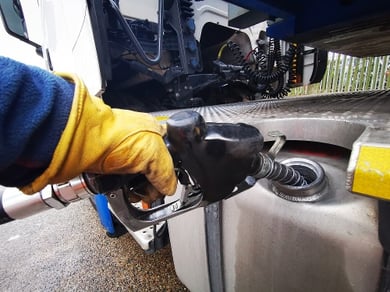Diesel fuel is commonly used in various industries and in transportation, but many people are unsure whether it is combustible or flammable. In this blog post, we will explore this topic and shed light on the characteristics of diesel fuel.
Defining Combustibility and Flammability
Before delving into the topic, let’s first understand the definitions of combustibility and flammability. Combustibility refers to the ability of a substance to burn or ignite when exposed to a source of heat or flame. On the other hand, flammability is the measure of a substance’s ability to catch fire and sustain combustion.

Credit: blog.storemasta.com.au
Diesel Fuel and Its Properties
Diesel fuel is a type of fuel commonly used in diesel engines, which power various vehicles, generators, and industrial equipment. Diesel fuel is made up of hydrocarbon molecules derived from crude oil. It has a higher energy density compared to gasoline, making it an efficient choice for heavy-duty applications.
In terms of its properties, diesel fuel is considered combustible rather than flammable. This means that diesel fuel requires a higher temperature to ignite compared to substances classified as flammable. The flash point of diesel fuel is typically above 130 degrees Fahrenheit or 54 degrees Celsius. At temperatures below the flash point, diesel fuel may release vapors, but it will not readily ignite.

Credit: www.hibiscus-plc.co.uk
Diesel Fuel and Safety
Since diesel fuel is combustible, it is essential to handle it with care and follow proper safety precautions. Here are some important safety measures to consider when dealing with diesel fuel:
- Store diesel fuel in approved containers or tanks designed for its safe storage.
- Avoid smoking or open flames near diesel fuel storage areas.
- Ensure proper ventilation when handling diesel fuel to prevent the buildup of vapors.
- Use appropriate personal protective equipment, such as gloves and goggles, when handling diesel fuel.
Diesel Fuel and its Uses
The combustibility of diesel fuel makes it suitable for various applications, including:
- Transportation: Diesel fuel is commonly used in trucks, buses, trains, and ships due to its energy efficiency and higher torque compared to gasoline.
- Industrial applications: Diesel fuel is often used in industrial machinery, construction equipment, and power generators.
- Agriculture: Farming equipment and machinery often rely on diesel fuel for their operations.
Overall, diesel fuel is a vital resource in many industries due to its combustible nature. However, it is crucial to handle and store diesel fuel safely to minimize any potential risks.
Frequently Asked Questions Of Is Diesel Combustible Or Flammable? Explained For Better Safety!
Is Diesel Combustible Or Flammable?
Diesel is combustible and has a high flash point, making it less flammable than gasoline.
Can Diesel Fuel Explode?
Although diesel fuel does not explode easily, it can still ignite in certain conditions such as high pressure or extreme heat.
What Makes Diesel Fuel Less Flammable?
The chemical composition of diesel fuel, which includes long hydrocarbon chains, contributes to its lower flammability compared to gasoline.
Is Diesel Safer Than Gasoline?
Diesel fuel is generally considered safer than gasoline due to its lower volatility and lower risk of explosion.
Conclusion
To summarize, diesel fuel is combustible rather than flammable. It requires a higher temperature to ignite, making it relatively safe to handle when compared to highly flammable substances. Understanding the properties of diesel fuel and following appropriate safety measures is essential when working with or storing this fuel.
